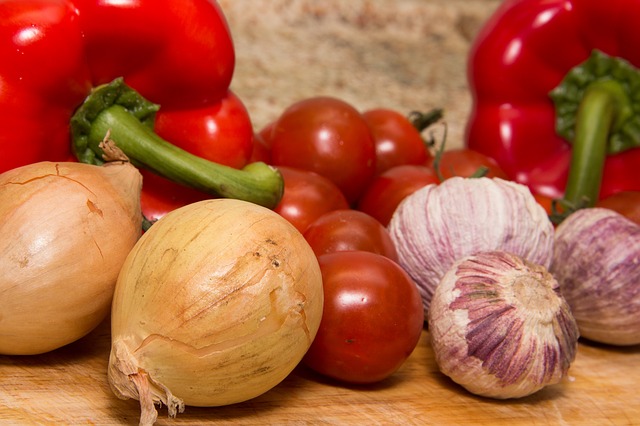The importance of healthful produce in one’s diet can simply not be overstated. Replete with nutrients and polyphenols with which the human organism can both healthily regenerate itself and simultaneously guard against degenerative disease, organic fruits, vegetables, and herbs are of fundamental importance to the maintenance of one’s physiological well-being. Whether one is supremely athletic, fairly fitness conscious, or only moderately active, the essential nature of antioxidant-rich, nutrient-dense foods rings true for us all. Given this truth, it is worth exploring how the cost-conscious amongst us may go about buying organic foods on a budget.
Throughout most of recorded history, given times of year saw the harvesting of certain crops which flourished under specific climatic conditions. What grew well during the drier summer months might well never have seen the light of day a mere three months later, while fruits suitable for springtime harvesting might have been fatally vulnerable to colder winter climes.
The result, of course, was a necessarily limited diet at any given moment in time. Fortunately for the era in which we find ourselves, agricultural advances in recent generations have allowed for the year-round producing, harvesting and distributing of virtually all produce, while preservation methods such as freezing/refrigeration afford purchasers longer periods of time in which to enjoy nature’s bounty.
Modern agriculture and logistics being thus, the prospect of buying organic foods on a budget is all the more favorable for those so inclined, as the industry as a whole is shifting ardently towards the yielding of produce devoid of those unsavory elements which compromise organic ratings.
A trend which began on the peripheries of food culture, eventually found a home with the wealthy and upper-middle class, as evidenced by the widespread presence of organic fruit and vegetable sections in grocery stores of all sorts. Of course, boutique stores in gentrified communities have long been associated with the organic movement, but the increasing popularity of farmer’s markets and food cooperatives has contributed greatly to widespread embracing of sensibly priced, high quality food.
Keep in mind these few marketplace considerations when buying organic foods on a budget.
1. Mainstream grocery stores have caught on and are looking to reclaim much of the market share they’ve forfeited to boutiques and high-class counterparts. Being late to the party has not prevented the large national chains from now providing their customers with a host of organic fruit and vegetable offerings. Furthermore, these chains are often able (and eager) to undersell their smaller competitors, in departments organic and non-organic alike. The clear winner in such an instance is the consumer, who was once rather limited in terms of organic produce options.
2. The boutiques and high-class grocers who once seemed to have cornered the organic food market are now finding it necessary to adjust fire, so to speak. At risk of losing large swaths of the customer base upon whom they once held a friendly stranglehold, many posh grocery stores are re-pricing organic fruits, vegetables and juices to render them somewhat commensurate with what their middle-tier counterparts are offering. Rarely will the prices matchup penny for penny, but neither will the food quality. After all, what renders a high-end establishment high-end are the standards to which such establishments hold both themselves and their vendors.
In most cases, produce shipments to wealthier food purveyors are expected to meet certain minimum quality levels in terms of freshness and appearance. The costs for adhering to these minimums are subsequently passed on to consumers, many of whom are perfectly willing to shell out the additional shekels for premium produce. However, once again, the consumer stands to score a tacit victory of sorts, as many top-tier grocers are resigned to reducing their bottom lines in order to stop the bleeding brought on by national chains entering the organic food space.
3. Farmer’s markets provide health-minded, financially responsible consumers with a venue in which to both purchase locally grown and harvested produce at fair prices and to engage directly with the growers and harvesters themselves. There exists an intrinsic value in the act of purchasing one’s food in the absence of a middleman, while the fruit and vegetable bounty available for sale tends to be of the highest quality available.
Many of these markets also offer baked goods and beverages prepared with the yields of their harvest, also of organic quality and almost always priced quite favorably. If the option exists, one should cherish the prospect of purchasing organic foods within the quaint and rustic scene of a local farmer’s market.
Want to learn more about buying organic foods on a budget? Connect with me, Meg Hall, a LA-based chef. I look forward to hearing from you soon.









